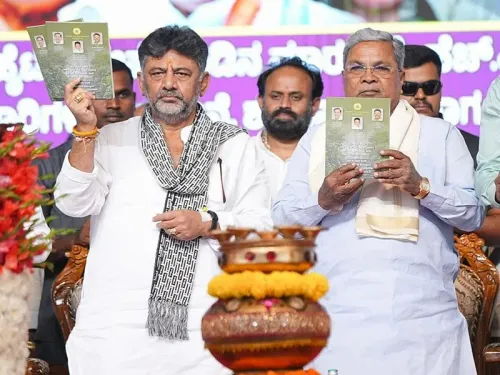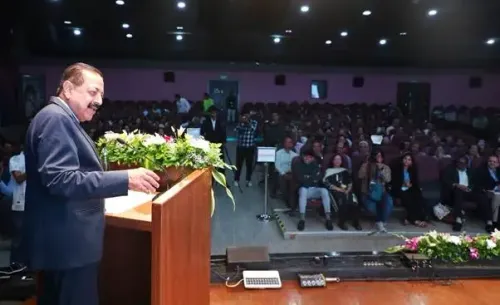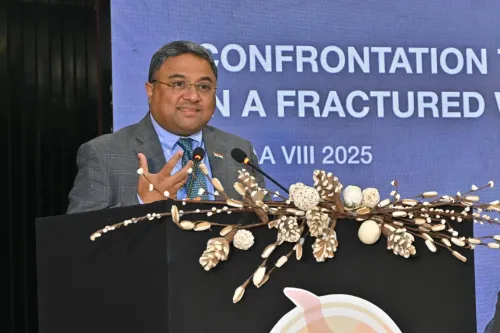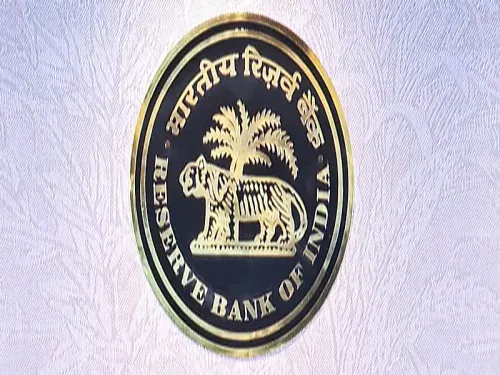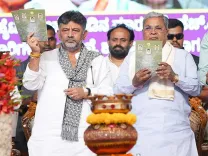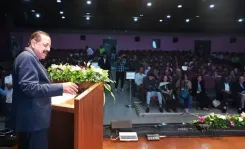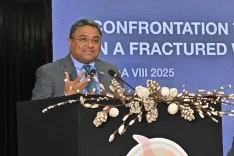Is Modi the 'Lion of the Sangh'?
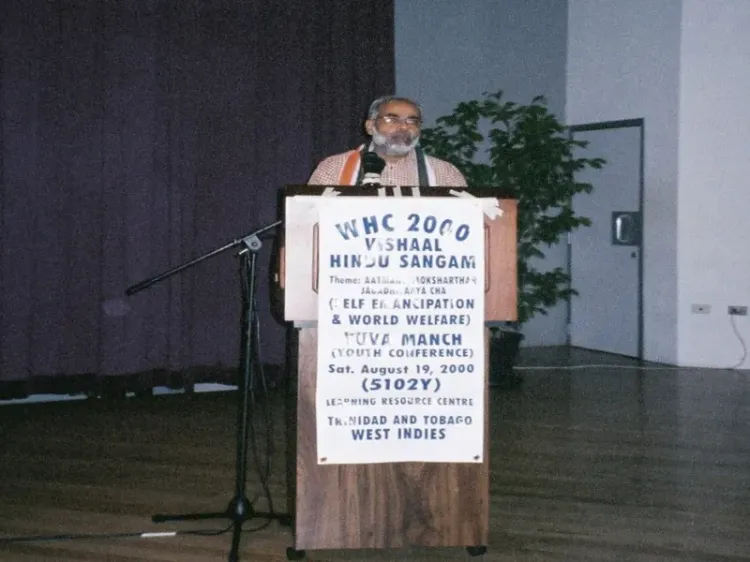
Synopsis
Key Takeaways
- Narendra Modi's emergence as a global leader began in Trinidad.
- The conference echoed themes of unity and cultural pride.
- Engagement with the Indo-Trinidadian community showcased Modi's commitment to cultural preservation.
- The importance of Hindu Dharma in contemporary society was emphasized.
- Modi's leadership continues to shape India's global identity.
New Delhi, July 3 (NationPress) In August 2000, at the Learning Resource Centre of the University of the West Indies located in Trinidad and Tobago, Narendra Modi -- at that time serving as the General Secretary of the Bharatiya Janata Party -- delivered a compelling address during the World Hindu Conference.
As he articulated the significance of Hindu Dharma in today's world, VHP leader Ashok Singhal turned to a colleague and exclaimed, “That is a lion of the Sangh!”
This phrase, which originated from that moment, would come to represent the emergence of a leader whose impact would soon resonate across India and beyond.
Hosted by the Sanatan Dharma Maha Sabha, the conference, themed “Self-Emancipation and World Welfare,” gathered over a thousand attendees from India, North America, Europe, Africa, and the Caribbean, as reported on the Modi Archive's X handle.
Narendra Modi’s keynote speech, titled “Hindu Dharma and Contemporary World Issues – Developing Where Technology Meets the Human World,” highlighted the necessity of aligning spiritual values with technological advancements.
The event featured notable personalities such as Trinidadian Prime Minister Basdeo Panday, RSS (Rashtriya Swayamsevak Sangh) Sarsanghchalak K. Sudarshan, Swami Chidanand Saraswati, and Ashok Singhal, according to the report from the Modi Archive.
The conference acted as a precursor to the Millennium World Peace Summit at the United Nations in New York later that month. Narendra Modi was a part of a distinguished Indian delegation that included Sri Sri Ravi Shankar, Sadhguru Jaggi Vasudev, Pramukh Swami Maharaj, and Dada JP Vaswani.
This summit, inaugurated by UN Secretary-General Kofi Annan, convened over 2,000 religious leaders from more than 100 nations to foster interfaith dialogue and global harmony.
During his visit to the Caribbean, Modi also connected with the Indo-Trinidadian community, visiting villages and engaging with cultural leaders like Pandita Indrani Rampersad, Dr. Vijay Narayansingh, and Ravindranath Maharaj.
He commended their dedication to preserving Indian traditions through generations and across various geographies, as noted in the report. Shortly after the UN summit, on September 9, 2000, Narendra Modi participated in a significant event in Staten Island, New Jersey. Organized by the Indian American community and the Vishwa Hindu Parishad, the gathering attracted over 5,000 participants.
The then Prime Minister Atal Bihari Vajpayee, as the chief guest of the evening, delivered a stirring 40-minute speech in Hindi, urging the diaspora to value India as their Matrabhoomi (motherland) while contributing to the success of their adopted country.
Narendra Modi’s presence alongside spiritual leaders further solidified his bond with the global Indian community.
Just two months later, in November 2000, Narendra Modi was appointed as BJP’s General Secretary (Organisation). By the end of 2001, he rose to become the Chief Minister of Gujarat, paving the way for a national leadership role that would culminate in his election as Prime Minister.
The lion that roared in Trinidad 25 years ago continues to influence India’s global identity, echoing the message he first proclaimed there: unity, cultural pride, and service to humanity.

